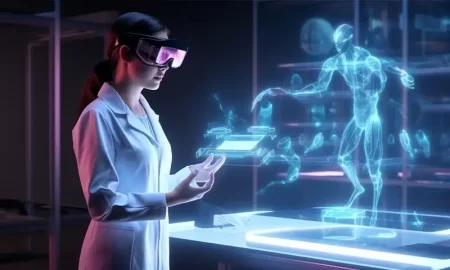Blockchain Technology Beyond Bitcoin
At most, blockchain technology brings to most people’s minds Bitcoin and other forms of cryptocurrency. But that is also not the only thing that blockchain can do; there are other things in the pipeline that blockchain can offer without reference to digital currencies. It is a revolutionary technology that has opened beauty doors in shaping industries and enhancing processes or providing wholly new solutions.
Let’s try to get into the other unobserved end of the blockchain hiding potential and see how this technology can literally transform sectors.
1. Characteristics of Blockchain Technology
Having established its context in the applications, let us quickly go over the term blockchain. The blockchain is a decentralized digital platform for recording data or transactions over multiple computers. It essentially implies transparency, security, and immutability, making it perfect for industries needing trust and efficiency.
2. Increased Efficiency and Transparency in Supply Chains
The advancement of blockchain into the supply chain evolution occurs via its increased openness. The commercialism such as that between Walmart and IBM employs blockchain technologies for tracking all shipments from their birth to their final destinations. This assures genuineness, reduces frauds, and increases logistics efficiencies.
Take-for-instance, Food products source into a blockchain-based system may be available for end consumers to verify their reasons for confidence in sustainable purchases.
3. Revolutioning Health care Systems
It is hoped that the introduction of blockchain into the healthcare sector will solve some of the most critical issues affecting the industry-including matters regarding data privacy and patient records. Being a secure platform for data storage and sharing of medical records, only individuals with preauthorization get access to sensitive information. Therefore, this improves data interoperability and reduces errors that arise from fragmented systems.
4. Augmentation of Cyber Security
The necessity of strong security as cyber attacks become more sophisticated. With a decentralized architecture, data is difficult for hackers to manipulate. Blockchain is the technology that is helping organizations create secured digital identities, safeguard information, and authenticate devices over the Internet of Things (IoT) environment.
5. Revolution on Real Property Transactions
Real estate transactions usually are connected with several intermediaries and elapsed time-consuming processes. It will, thus, offer self-executing contracts whose terms are directly written in code as smart contracts. This does away with intermediaries, accelerates the speed of transactions, and decreases the costs to buyers and sellers.
6. Transformation of Digital Identity Management
Identity theft is an ever-increasing reality of a digital age; blockchain, as a new technology, provides a secure and verifiable way of managing digital identities. Individuals can now manage their personal information through policies that are blockchain-based, allowing them to maintain control over their data and share it only when necessary, thus minimizing identity theft risks.
7. Advancing Innovation in Education
Schools have begun giving certificates and degrees that cannot be tampered with using blockchain technology. Thus, there will be ways to reduce fraud and hassle for employers trying to verify applicants. Blockchain allows a public record of learning achievement to be maintained, giving a greater ability for individuals to keep track and even showcase what skills and accomplishments they have.
8. Advancing Renewable Energy Solutions
Indeed, the energy sector is particularly thriving in relation to renewable energy solutions facilitated by blockchain technology-the peer-to-peer energy trading platforms where households can sell their surplus solar energy directly to their neighboring households. This encourages energy efficiency through decentralized systems and reduces dependency on centralized power grids.
9. Enhancing the Voting System
The very interesting aspect of the application of blockchain has been e-voting. Blockchain serves to retain votes secure, transparent and tamper-proof. As a result, it finally obliterates doubts and issues that have existed for many years concerning the integrity of voting. Nations, like in Estonia, are already putting into operation a piloted experiment in their voting systems and eventually heading to demystifying things regarding how citizens can contribute in a democracy.
10. Broadening the Scope of Philanthropic Giving
Blockchain will completely revamp charity systems through increased transparency in donations. It is possible for the donor to trace what that amount has turned into, thus ensuring that much goes to the real cause of the charity. It provides a source of confidence and attracts many other people to do some charity things.
Conclude: Realizing Genuine Potential in Blockchain
Although many know blockchain primarily in association with cryptocurrencies typically such as Bitcoin, its true potential lies within the use of many industries. From supply chains and healthcare to education and renewable energy, blockchain solves real problems and stimulates innovation while still continuing to sustain more society change. But as the technology advances, it will only exaggerate the changing process in its effect on life as we know it.












